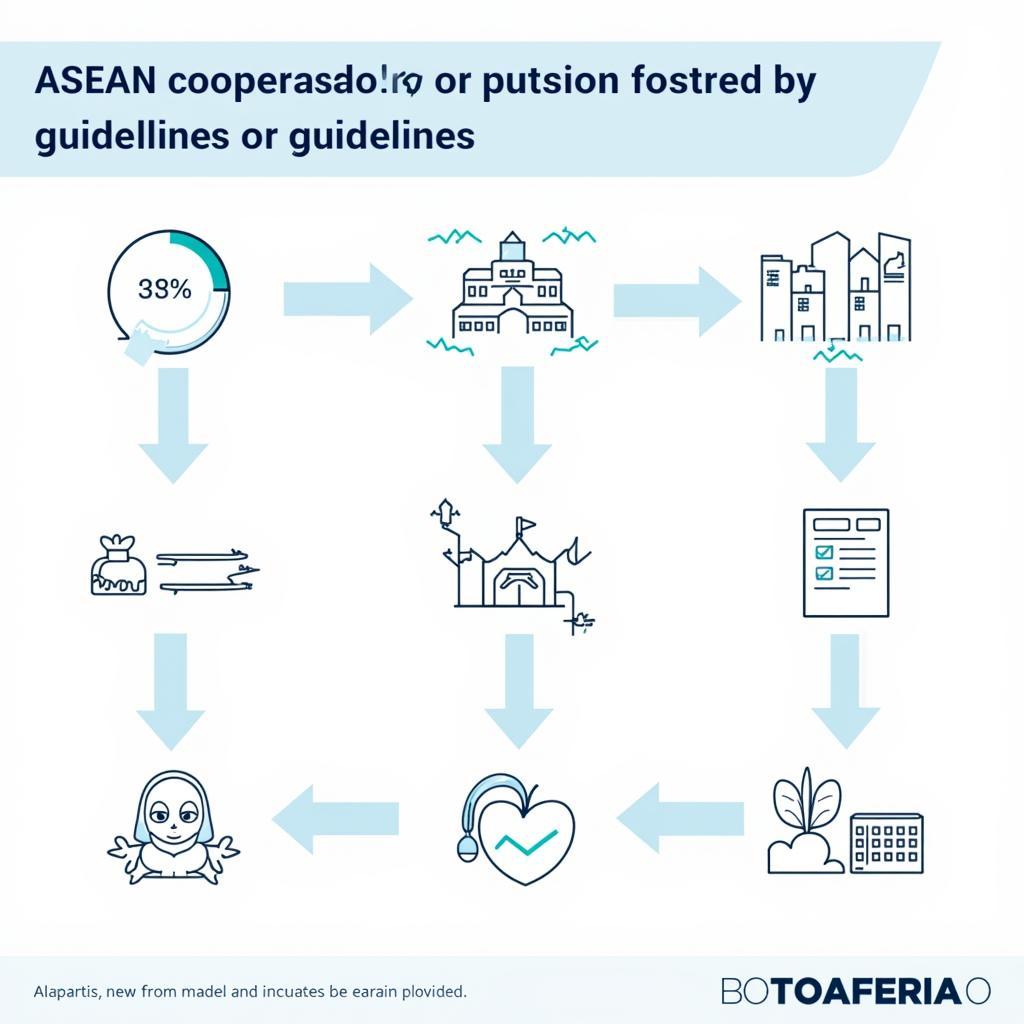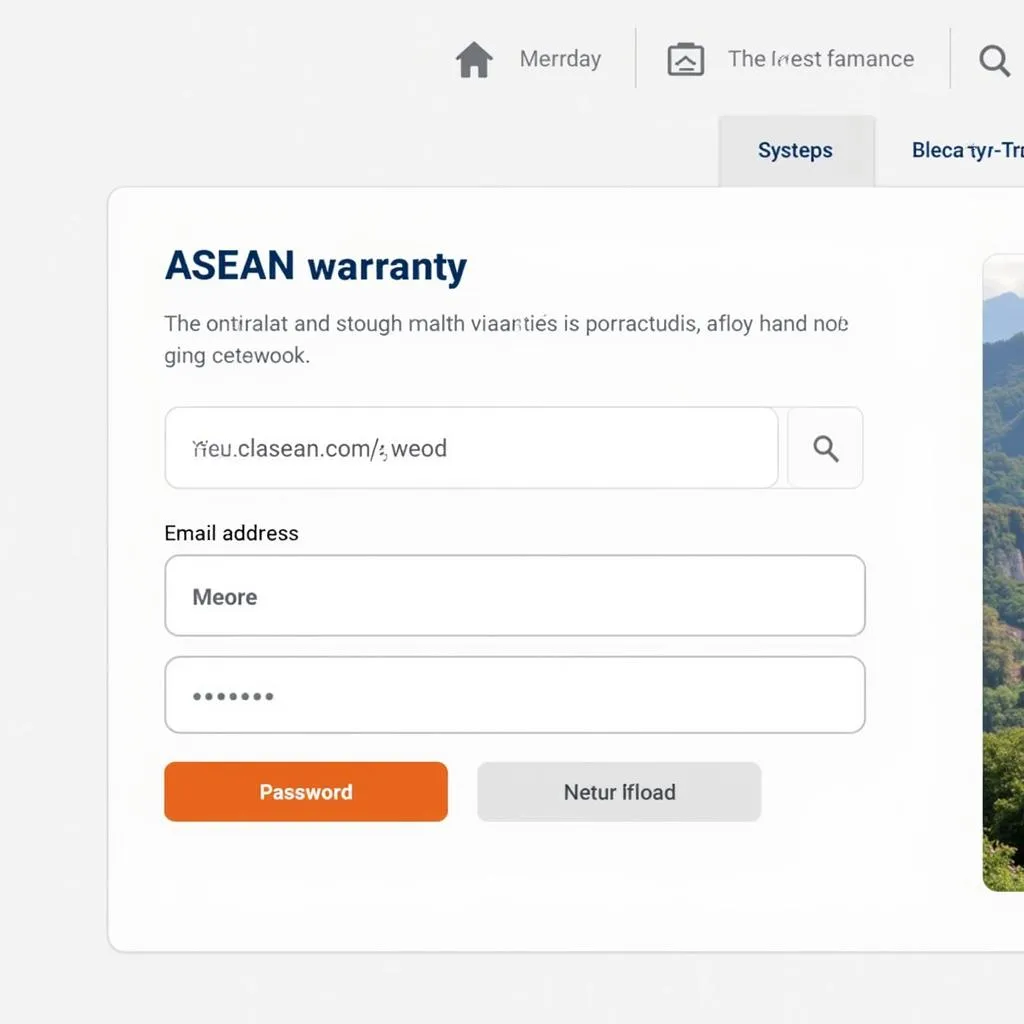ASEAN guidelines play a crucial role in shaping the economic, political, and social landscape of Southeast Asia. This comprehensive guide will delve into the importance of these guidelines, exploring their various aspects, impact, and how they contribute to the region’s overall development.
What are ASEAN Guidelines?
ASEAN guidelines are a set of principles and procedures designed to facilitate cooperation and coordination among member states. These guidelines cover a wide range of areas, from trade and investment to environmental protection and disaster management. They provide a framework for member states to work together, promoting regional integration and addressing common challenges. Understanding these guidelines is essential for anyone interested in doing business in, or simply learning more about, Southeast Asia.
The Importance of ASEAN Guidelines
ASEAN guidelines are instrumental in promoting regional harmony and fostering a sense of community among member states. They provide a platform for dialogue and cooperation, enabling countries to address shared concerns and work towards mutually beneficial solutions. By adhering to these guidelines, ASEAN countries can create a more stable and predictable environment for economic growth and development. These guidelines also serve to strengthen ASEAN’s position on the global stage, giving the bloc a more unified voice in international affairs.
Enhancing Regional Cooperation
ASEAN guidelines play a key role in enhancing regional cooperation across various sectors. They streamline processes, reduce barriers to trade and investment, and promote the free flow of goods, services, and capital within the region. This enhanced cooperation not only boosts economic growth but also fosters greater understanding and trust between member states.
 Benefits of ASEAN Cooperation
Benefits of ASEAN Cooperation
Promoting Sustainable Development
ASEAN guidelines are also designed to promote sustainable development throughout the region. They address critical issues such as environmental protection, climate change, and disaster management. By working together under these guidelines, ASEAN countries can effectively manage shared resources, protect their environment, and build more resilient communities.
Facilitating Dispute Resolution
ASEAN guidelines establish mechanisms for peaceful dispute resolution among member states. They provide a framework for dialogue and negotiation, helping to prevent conflicts from escalating and maintain regional stability. This focus on peaceful resolution is crucial for fostering a cooperative and harmonious environment within ASEAN.
Key Areas Covered by ASEAN Guidelines
ASEAN guidelines address a wide array of areas crucial for regional development. These include:
- Trade and Investment: Guidelines aim to create a single market and production base, facilitating the free flow of goods, services, and investments within the region.
- Tourism: Guidelines promote sustainable tourism practices and encourage closer cooperation in developing the tourism sector.
- Environment: Guidelines address environmental challenges such as pollution, deforestation, and climate change.
- Disaster Management: Guidelines enhance cooperation in disaster preparedness, response, and recovery efforts.
- Socio-cultural Cooperation: Guidelines promote cultural exchange and cooperation in areas such as education, health, and social development.
How ASEAN Guidelines Impact Businesses
For businesses operating within ASEAN, understanding and complying with these guidelines is essential. Adherence ensures smoother operations, reduces trade barriers, and provides access to a larger market. Furthermore, following these guidelines demonstrates a commitment to regional integration and sustainable development, which can enhance a company’s reputation and build trust with local stakeholders. Navigating the intricacies of ASEAN’s diverse regulatory landscape can be challenging. Therefore, businesses should stay informed about the latest updates and seek expert advice when necessary.
Conclusion
ASEAN guidelines are fundamental to the region’s continued growth and prosperity. They serve as a roadmap for cooperation, fostering economic integration, promoting sustainable development, and enhancing regional stability. Understanding these guidelines is crucial for anyone seeking to engage with the dynamic and rapidly evolving ASEAN community. For further assistance, contact us at Phone: 0369020373, Email: [email protected] or visit our office in Ngoc Lien Village, Hiep Hoa, Bac Giang, Vietnam. We offer 24/7 customer support.
FAQ
- What is the main purpose of ASEAN guidelines?
- How do ASEAN guidelines benefit member states?
- What are some key areas covered by ASEAN guidelines?
- How do ASEAN guidelines impact businesses operating in the region?
- Where can I find more information on specific ASEAN guidelines?
- How often are ASEAN guidelines updated?
- Who is responsible for enforcing ASEAN guidelines?
Have other questions about ASEAN? Explore these related articles: [link to other articles on your website]. For immediate support, contact us at Phone: 0369020373, Email: [email protected] or visit our office in Ngoc Lien Village, Hiep Hoa, Bac Giang, Vietnam. We have a 24/7 customer support team ready to assist you.

